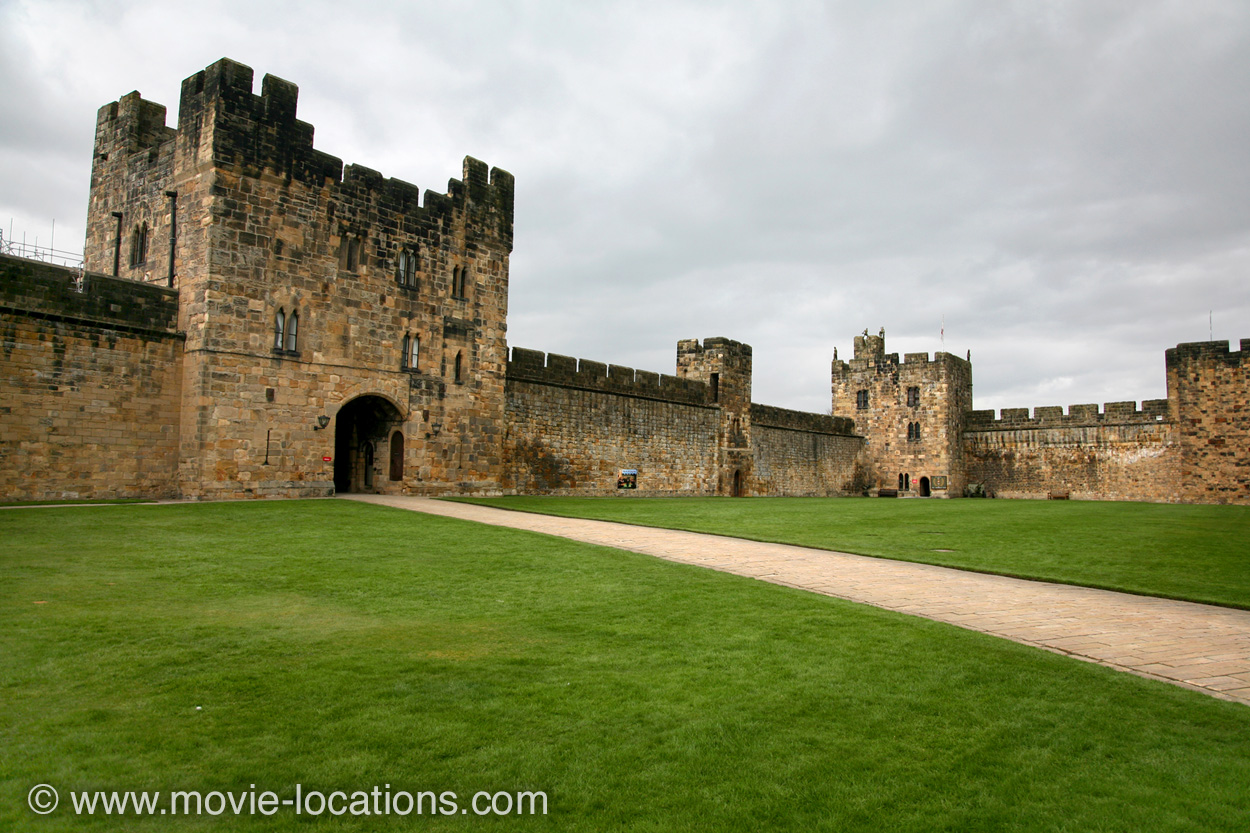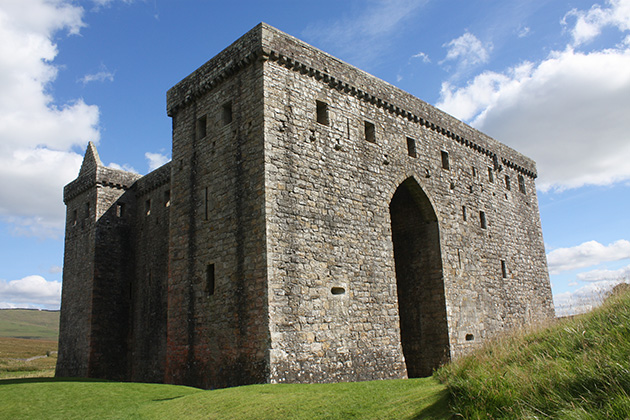Mary, Queen of Scots | 1971


Almost forgotten now, this was a big film in its day (with epic-style Overture and Intermission), collecting five Oscar nominations, including Vanessa Redgrave for Best Actress and composer John Barry for his stirring score. The film also capitalised on Glenda Jackson reprising the character she’d played successfully on television in the series Elizabeth R.
The romantic castle, in which Mary (Redgrave) lives blissfully with her husband King Francis II until his sudden untimely death, is Château de Chenonceau, six miles southeast of Amboise. Built in the early 16th Century by a tax collector called Thomas Bohier, it was later owned by kings François I, then Henri II (father of the Francis II portrayed in the film) – who gave it to his mistress Diane de Poitiers – until it was snatched back by Henri’s widow, Catherine de Medici. Its striking gallery is built on arches over the River Cher. You can see the castle again in colourful 1955 period adventure The Adventures Of Quentin Durward.

The addition of a couple of conical spires doesn't really disguise the second 'French' castle, at which Mary receives the news she will not be granted safe passage by Elizabeth through England. Now forever familiar as the primary location for ‘Hogwarts’ in the Harry Potter movies, it's Alnwick Castle, Northumberland, off the A1, 30 miles north of Newcastle-upon-Tyne. Alnwick's other screen appearances include Shekhar Kapur’s historical epic Elizabeth, with Cate Blanchett as the queen, Robin Hood, Prince of Thieves, with Kevin Costner, and Disney fantasy The Spaceman and King Arthur.
Returning to Scotland, Mary steps ashore with her priest Father Ballard and musician/spy Rizzio (Ian Holm), to a modest welcome from her brother James Stuart (Patrick McGoohan) and the Scottish chiefs on the beach at at Seahouses, a large coastal village in Northumberland, about 12 miles north of Alnwick.
And Alnwick – with the 'French' additions removed – crops up again as the royal 'Palace of Holyrood', to which Queen Mary rides.
Once the vain and debauched Lord Darnley (Timothy Dalton) arrives, 'Holyrood' has become Bamburgh Castle, a further 15 miles to the north, which allows for the scene of the pair riding horses along the beach beneath the castle.
Bamburgh, perched dramatically, and photogenically, atop a coastal outcrop, was originally a native British fort rebuilt by Normans to form the core of the present Bamburgh, which inevitably became the property of the reigning monarch (its keep was supposedly built for Henry II).
The castle seriously deteriorated until the 18th and 19th Centuries, when restoration was begun by various owners. It was eventually being by a Victorian industrialist called William Armstrong, whose family still owns Bamburgh. It is, though, open to the public.
Bamburgh was also used for the long-shots of 'Loudun' in Ken Russell’s masterpiece The Devils, in the 1964 costume drama Becket, with Peter O'Toole and Richard Burton, as well as appearing in both Roman Polanski's 1971 film of Macbeth, and the 2015 version of Macbeth with Michael Fassbender and Marion Cotillard.

Elizabeth's country estate is the 16th Century Parham House, Storrington, near Pulborough, on the A283 about 10 miles northwest of Worthing in West Sussex. Along with the surrounding 300 acres of ancient deer park (its Fallow Deer are descendants of the original herd, first recorded in 1628), it's now owned by a charitable trust and is open to visitors.
Parham was the main location of Lewis Gilbert's 1995 chiller Haunted, with Aidan Quinn and John Gielgud.

Following the bloody murder of Rizzio, the pregnant Mary escapes with Bothwell (Nigel Davenport) to the safety of Hermitage Castle, on the B6399, ten miles south of Hawick, in the Scottish Borders. This really is the place to which Mary and Bothwell fled.
Hermitage's history lives up to its formidable appearance. For most of its 400-year life, the castle was the key to controlling the English-Scottish border, and was colourfully described by author George Macdonald Fraser as “the guardhouse of the bloodiest valley in Britain”.
Begun in 1360, the castle was adapted in the 1500s to respond to the new threat posed by gunpowder, with gun holes punched in its thick walls and a massive gun defence built to protect the castle’s western approach.
After England and Scotland were united in 1603 under Queen Mary’s son James VI of Scotland and James I of England, Hermitage was abandoned and left to romantic decay.





